Just after 5am last Friday, Minister for Agriculture Charlie McConalogue emerged from a marathon meeting of EU farm ministers in Brussels and declared there would be no CAP deal.
Intense discussions between the Council of Ministers, MEPs from the European Parliament and the European Commission had been ongoing for more than three days at that stage.
While others wondered if a compromise might yet be thrashed out on Friday, agricultural ministers had seen enough, they were packing their bags and heading home.
On Thursday evening, the chances of reaching a deal had been rated as high as 70% but ultimately disagreements over the greening and targeting of farm payments saw talks collapse.
The finger-pointing started in earnest on Friday but all sides have committed to reconvening at the end of June.
Until then, farmers can only guess at what their payments will look like in 2023.
So what was on the table and where did it all go wrong?
Without doubt, eco schemes will be the biggest change for farmers in the next CAP. Traditionally, agri-environmental measures have been funded through optional rural development schemes which attract a bonus payment for farmers.
From 2023, a portion of the direct payment budget, which up to now has acted as an income support, will be ring-fenced and used to compensate farmers for climate and environmental action.
Last week, negotiators did manage to settle on ring-fencing 25% of direct payments for eco schemes.
Where talks fell down was around flexibilities for the pot of money that would be created.
Agricultural ministers have sought to include a range of flexibilities to allow unspent eco scheme funds to be transferred to other CAP payments.
Their fear is that if the uptake among farmers is low, a large portion of the ring-fenced budget may not be drawn down.
Considering that only half of the 122,000 Irish farmers who receive a direct payment annually take part in an agri-environmental scheme, it is a real fear.
If every cent of eco-scheme money is not drawn down, ministers would face an angry backlash from farmers who suffer cuts to their payments only to see unspent funds returned to Brussels.
The flexibilities would operate during a two-year learning period at the start of the next CAP as farmers adjusted to eco schemes.
However, the Parliament is concerned that ministers are watering down the green ambitions of the CAP.
MEPs believe EU citizens wish to see greater environmental action in all areas of EU policy. If it is perceived that the CAP is not pulling its fair share of the weight then protecting its budget next time around could prove impossible.
If the flexibilities for unspent funds are too lenient, MEPs fear efforts to maximise eco scheme take-up among farmers will be weakened.

Minister for Agriculture Charlie McConalogue in conversation with Luis Planas Puchades, Spanish Minister for Agriculture, Fisheries and Food at CAP talks. \ European Union
A CAP that is seen as fair is another aspect which is important to ensure continued support from citizens and farmers.
A growing theme in CAP reforms has been the shuffling of payments from one farmer to another and the next one is no different, with further convergence along with other tools on the cards.
At last week’s talks, there was an agreement that 10% of direct payments would have to be set aside to provide a redistributive payment.
These funds would be used for a scheme called the Complementary Redistributive Income Support for Sustainability (CRISS).
It would move payments from larger farms to smaller or medium-sized farms by making extra top-up payments on a set number of hectares of a farm, for example the first 15ha. This is known as front-loading.
To fund such a scheme, a linear cut at all direct payments would be required.
Farm ministers wanted exemptions for member states that showed they were already doing so through other tools, such as capping or convergence.
MEPs saw this as an attempt to minimise cuts for larger payment holders and want only capping considered.
The final rate of payment convergence remains up in the air. The Parliament has not yet conceded on full flattening while ministers have put forward a compromise rate of 85%.
Portuguese president of the Council of Ministers Maria do Céu Antunes had hoped to wrap up CAP talks in May. Her term as president ends on 30 June and she is keen to secure the political kudos of finalising this long-
running reform.
The last chance for Minister Antunes to do so will be on 29 and 30 June when farm ministers meet again in Luxembourg.
Expect a repeat of the week just gone, with late night meetings and plenty of posturing. The only difference with hopefully be the outcome.
In brief: how the negotiators reacted
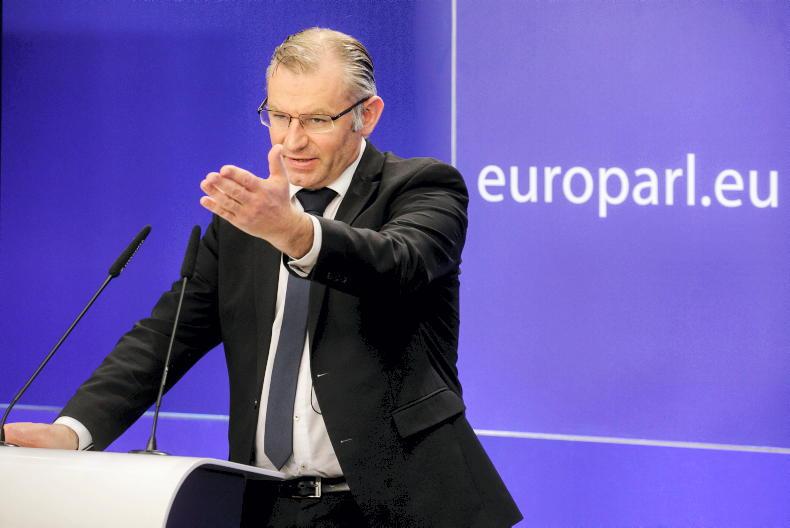
Norbert Lins, German MEP and chief negotiator for the European Parliament
“We’re prepared to hold new negotiations. We have to welcome the negotiations that have taken place so far and we have to hope that we’re going to talk to each other more, rather than at each other.”
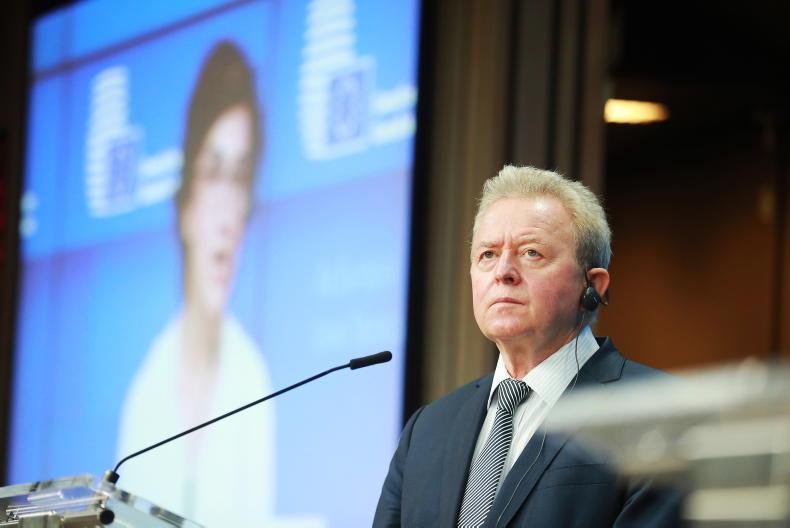
Janusz Wojciechowski, European Commissioner for Agriculture
“We didn’t manage it in the month of May, but we’ve got the whole month of June ahead of us and I do hope that we are going to be able to find a positive outcome. We’re getting close.”
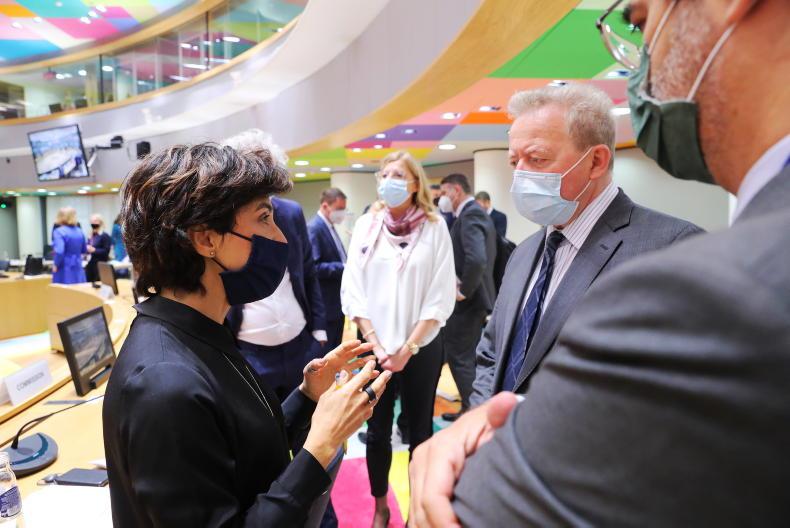
Maria do Céu Antunes, president of the Council of Ministers
“The Council decided to suspend the negotiations to start taking stock and think through how we can best endeavour to conclude this reform. I think that the differences that are outstanding will be quite easy to bridge. We’ve done the hardest part of the work. Now we need compromises.”
Division between farm organisations emerging on CAP
CAP reforms are rarely unifying events and less than 24 hours after CAP talks broke down, division between farm organisations were already beginning to emerge.
The Irish Farmers Association (IFA) president Tim Cullinan said the ending of talks without a deal was the best outcome for now. He said under the current proposals, a cohort of family farms in Ireland will suffer “a triple whammy” due to eco schemes, convergence and mandatory redistribution proposals.
During talks, Cullinan said Minister for Agriculture Charlie McConalogue could not sign up to a sellout of Irish farmers.
“The Commissioner and the European Parliament want to spread the money to keep a larger number of farmers in poverty. Only one-third of farmers in Ireland are viable. If the EU get their way, we will have no viable farm families,” Cullinan said.
In contrast, the Irish Natura and Hill Farmers Association (INHFA) had called for the minister to stay at the table.
INHFA president Colm O’Donnell said he was dismayed at the suggestion from some farm organisations that the minister should walk away from the talks.
“It is disappointing that most of our farming organisations continue to work against a deal that delivers for the majority of Irish farmers,” O’Donnell said.
“With a front-loaded option included, farmers with high-value entitlements with small amounts of hectares would be insulated from the effects of convergence. It is staggering to think that the other organisations are working against the introduction of a front-loaded option.”
President of the Irish Creamery and Milk Suppliers Association (ICMSA) Pat McCormack believes the proposed deal would undermine the Irish family farm model.
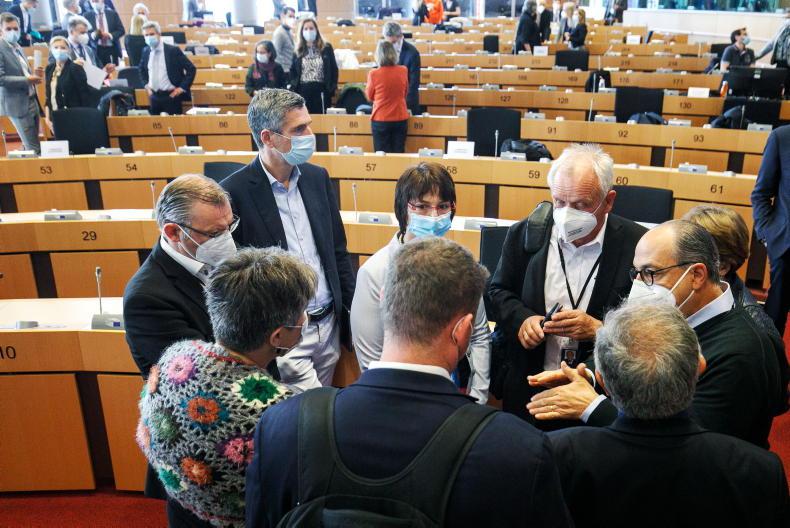
The European Parliament's CAP negotiating team locked in discussions during talks in Brussels. \ Thierry Roge EP
Exception
He has proposed an exception from convergence for farmers receiving a payment under a certain level, to be set by the member state.
McCormack said that concentration on payment per hectare is pointless and that the focus should be on total direct payments to an individual farmer.
The Irish Cattle and Sheep Farmers’ Association (ICSA) president Dermot Kelleher said it was unacceptable for payments to beef, suckler, sheep and tillage farmers to fall.
Kelleher has previously flagged Teagasc national farm survey figures which show dairy farmers receive a higher direct payment per hectare (€280/ha) than sheep or suckler farmers (€244/ha), and one similar to beef farmers (€299/ha).
“It cannot be right that the most profitable sector is now doing better out of Pillar I CAP supports than many of the farmers who need it most,” Kelleher said in April.
Clive Carter from the Irish Grain Growers said he was growing nervous for tillage farmers.
“I looks like we’re not going to get any reward for the work done over the previous CAP as greening is absorbed into cross compliance. We can only hope that eco schemes will be made accessible for tillage farmers,” Carter said.
“There has been such an erosion of payments in recent years and it is disproportionately hurting full time family farms which should be the cornerstone of the CAP.”
Just after 5am last Friday, Minister for Agriculture Charlie McConalogue emerged from a marathon meeting of EU farm ministers in Brussels and declared there would be no CAP deal.
Intense discussions between the Council of Ministers, MEPs from the European Parliament and the European Commission had been ongoing for more than three days at that stage.
While others wondered if a compromise might yet be thrashed out on Friday, agricultural ministers had seen enough, they were packing their bags and heading home.
On Thursday evening, the chances of reaching a deal had been rated as high as 70% but ultimately disagreements over the greening and targeting of farm payments saw talks collapse.
The finger-pointing started in earnest on Friday but all sides have committed to reconvening at the end of June.
Until then, farmers can only guess at what their payments will look like in 2023.
So what was on the table and where did it all go wrong?
Without doubt, eco schemes will be the biggest change for farmers in the next CAP. Traditionally, agri-environmental measures have been funded through optional rural development schemes which attract a bonus payment for farmers.
From 2023, a portion of the direct payment budget, which up to now has acted as an income support, will be ring-fenced and used to compensate farmers for climate and environmental action.
Last week, negotiators did manage to settle on ring-fencing 25% of direct payments for eco schemes.
Where talks fell down was around flexibilities for the pot of money that would be created.
Agricultural ministers have sought to include a range of flexibilities to allow unspent eco scheme funds to be transferred to other CAP payments.
Their fear is that if the uptake among farmers is low, a large portion of the ring-fenced budget may not be drawn down.
Considering that only half of the 122,000 Irish farmers who receive a direct payment annually take part in an agri-environmental scheme, it is a real fear.
If every cent of eco-scheme money is not drawn down, ministers would face an angry backlash from farmers who suffer cuts to their payments only to see unspent funds returned to Brussels.
The flexibilities would operate during a two-year learning period at the start of the next CAP as farmers adjusted to eco schemes.
However, the Parliament is concerned that ministers are watering down the green ambitions of the CAP.
MEPs believe EU citizens wish to see greater environmental action in all areas of EU policy. If it is perceived that the CAP is not pulling its fair share of the weight then protecting its budget next time around could prove impossible.
If the flexibilities for unspent funds are too lenient, MEPs fear efforts to maximise eco scheme take-up among farmers will be weakened.

Minister for Agriculture Charlie McConalogue in conversation with Luis Planas Puchades, Spanish Minister for Agriculture, Fisheries and Food at CAP talks. \ European Union
A CAP that is seen as fair is another aspect which is important to ensure continued support from citizens and farmers.
A growing theme in CAP reforms has been the shuffling of payments from one farmer to another and the next one is no different, with further convergence along with other tools on the cards.
At last week’s talks, there was an agreement that 10% of direct payments would have to be set aside to provide a redistributive payment.
These funds would be used for a scheme called the Complementary Redistributive Income Support for Sustainability (CRISS).
It would move payments from larger farms to smaller or medium-sized farms by making extra top-up payments on a set number of hectares of a farm, for example the first 15ha. This is known as front-loading.
To fund such a scheme, a linear cut at all direct payments would be required.
Farm ministers wanted exemptions for member states that showed they were already doing so through other tools, such as capping or convergence.
MEPs saw this as an attempt to minimise cuts for larger payment holders and want only capping considered.
The final rate of payment convergence remains up in the air. The Parliament has not yet conceded on full flattening while ministers have put forward a compromise rate of 85%.
Portuguese president of the Council of Ministers Maria do Céu Antunes had hoped to wrap up CAP talks in May. Her term as president ends on 30 June and she is keen to secure the political kudos of finalising this long-
running reform.
The last chance for Minister Antunes to do so will be on 29 and 30 June when farm ministers meet again in Luxembourg.
Expect a repeat of the week just gone, with late night meetings and plenty of posturing. The only difference with hopefully be the outcome.
In brief: how the negotiators reacted

Norbert Lins, German MEP and chief negotiator for the European Parliament
“We’re prepared to hold new negotiations. We have to welcome the negotiations that have taken place so far and we have to hope that we’re going to talk to each other more, rather than at each other.”

Janusz Wojciechowski, European Commissioner for Agriculture
“We didn’t manage it in the month of May, but we’ve got the whole month of June ahead of us and I do hope that we are going to be able to find a positive outcome. We’re getting close.”

Maria do Céu Antunes, president of the Council of Ministers
“The Council decided to suspend the negotiations to start taking stock and think through how we can best endeavour to conclude this reform. I think that the differences that are outstanding will be quite easy to bridge. We’ve done the hardest part of the work. Now we need compromises.”
Division between farm organisations emerging on CAP
CAP reforms are rarely unifying events and less than 24 hours after CAP talks broke down, division between farm organisations were already beginning to emerge.
The Irish Farmers Association (IFA) president Tim Cullinan said the ending of talks without a deal was the best outcome for now. He said under the current proposals, a cohort of family farms in Ireland will suffer “a triple whammy” due to eco schemes, convergence and mandatory redistribution proposals.
During talks, Cullinan said Minister for Agriculture Charlie McConalogue could not sign up to a sellout of Irish farmers.
“The Commissioner and the European Parliament want to spread the money to keep a larger number of farmers in poverty. Only one-third of farmers in Ireland are viable. If the EU get their way, we will have no viable farm families,” Cullinan said.
In contrast, the Irish Natura and Hill Farmers Association (INHFA) had called for the minister to stay at the table.
INHFA president Colm O’Donnell said he was dismayed at the suggestion from some farm organisations that the minister should walk away from the talks.
“It is disappointing that most of our farming organisations continue to work against a deal that delivers for the majority of Irish farmers,” O’Donnell said.
“With a front-loaded option included, farmers with high-value entitlements with small amounts of hectares would be insulated from the effects of convergence. It is staggering to think that the other organisations are working against the introduction of a front-loaded option.”
President of the Irish Creamery and Milk Suppliers Association (ICMSA) Pat McCormack believes the proposed deal would undermine the Irish family farm model.

The European Parliament's CAP negotiating team locked in discussions during talks in Brussels. \ Thierry Roge EP
Exception
He has proposed an exception from convergence for farmers receiving a payment under a certain level, to be set by the member state.
McCormack said that concentration on payment per hectare is pointless and that the focus should be on total direct payments to an individual farmer.
The Irish Cattle and Sheep Farmers’ Association (ICSA) president Dermot Kelleher said it was unacceptable for payments to beef, suckler, sheep and tillage farmers to fall.
Kelleher has previously flagged Teagasc national farm survey figures which show dairy farmers receive a higher direct payment per hectare (€280/ha) than sheep or suckler farmers (€244/ha), and one similar to beef farmers (€299/ha).
“It cannot be right that the most profitable sector is now doing better out of Pillar I CAP supports than many of the farmers who need it most,” Kelleher said in April.
Clive Carter from the Irish Grain Growers said he was growing nervous for tillage farmers.
“I looks like we’re not going to get any reward for the work done over the previous CAP as greening is absorbed into cross compliance. We can only hope that eco schemes will be made accessible for tillage farmers,” Carter said.
“There has been such an erosion of payments in recent years and it is disproportionately hurting full time family farms which should be the cornerstone of the CAP.”






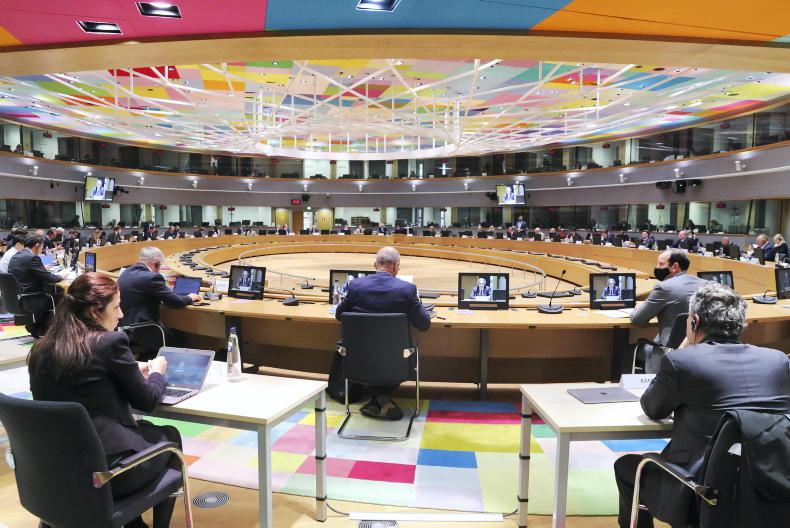




 This is a subscriber-only article
This is a subscriber-only article









SHARING OPTIONS: